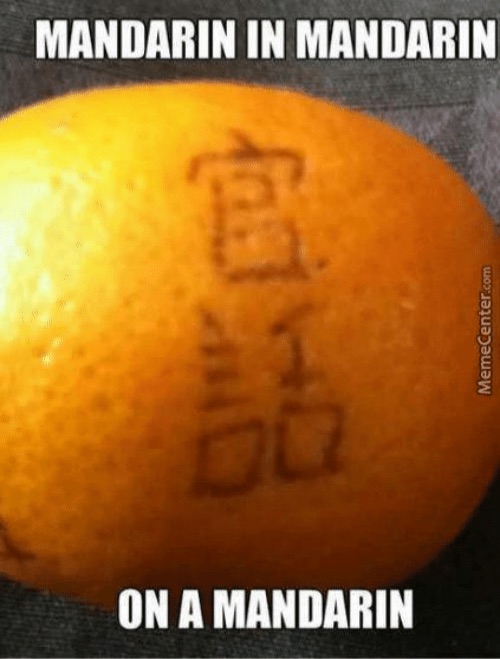Archive for Language and education
June 26, 2019 @ 6:33 am· Filed by Victor Mair under Language and culture, Language and education, Language and religion, Language and the media
During the last few decades, I have served as the "opponent" in several Scandinavian doctoral defenses. I wore a tuxedo, top hat, and silk socks, plus gleaming black shoes. Much of the ritual was conducted in Latin, so I was quite aware of the high place accorded that ancient language in Scandinavian academia, especially in Finland, where all of my colleagues, no matter what their field, had received extensive training in Latin already in high school back in the fifties, sixties, and seventies. It seems, however, that Latin education has been rapidly declining since that time.
Now, one of the last holdouts for general knowledge of Latin in Finland is being terminated:
"Requiescat in pace: Finland's Yle radio axes Latin news show after 30 years: Public broadcaster cancels weekly summary Nuntii Latini as original presenters retire", AFP in Helsinki, The Guardian (6/24/19)
Read the rest of this entry »
Permalink
June 3, 2019 @ 11:16 pm· Filed by Victor Mair under Humor, Language and education, Language and politics
These are jokes circulating on the Chinese internet. Not all of them have to do with Chinese languages per se in the narrowest sense.
Mandarin

Guānhuà 官話 (lit., "officials' talk", "Mandarin")
Read the rest of this entry »
Permalink
May 30, 2019 @ 12:47 pm· Filed by Victor Mair under Language and education, Language and politics
The "sǎo hēi chú è 扫黑除恶" ("sweeping away blackness and eliminating evil") campaign in China not only has not waned, but rather is going in a hysterical direction. The local authorities in Wuxi are marching into the kindergartens; below is their conclusion after investigating one of them:

Read the rest of this entry »
Permalink
April 26, 2019 @ 7:51 am· Filed by Victor Mair under Language and computers, Language and education, Language teaching and learning, Phonetics and phonology, Reading, Writing, Writing systems
In several recent posts, we've been discussing the most efficient, least painful way to acquire facility with hanzi / kanji / hanja 漢字 ("Sinographs; Chinese characters"). Lord knows there are endless numbers of them and they are so intricately constructed that it is an arduous task to master the two thousand or so that are necessary for basic literacy.
It would be so much easier to learn the Sinographs if language pedagogues would provide phonetic annotations for each character. Better yet, the phonetic annotations should be divided into words with spaces between them according to the official orthographic rules.
Read the rest of this entry »
Permalink
April 14, 2019 @ 3:18 pm· Filed by Victor Mair under Language and education, Language and science, Morphology, Transcription, Vernacular, Words words words
Another science card given out to first grade students in Shenzhen, China (see "Readings" below for the first one):

Read the rest of this entry »
Permalink
April 11, 2019 @ 5:15 pm· Filed by Victor Mair under Diglossia and digraphia, Language and education, Orthography, Phonetics and phonology, Politics of language, Words words words
Science card given out to first grade students in Shenzhen, China:

Read the rest of this entry »
Permalink
March 5, 2019 @ 8:00 pm· Filed by Victor Mair under Diglossia and digraphia, Language and education, Pronunciation, Writing systems
[This is a guest post from a frustrated Chinese father in the PRC, written in response to the discussion in the comments that followed this post: "The Sinophone" (2/28/19). He doesn't mince words, but this is how he feels — passionately — about his fatherland.]
As usual, the more I learn the more am I convinced it's an idiotic script that has convoluted the natural evolution of the language.
I think about how, without pinyin and modern technology, the authorities would have accomplished changing the pronunciation nationwide.
Moreover, I've noticed the seemingly arbitrary, multiple pronunciations of many characters throughout these years.
I also believe that it is due to the limitations of the script that the troublesome issue of the multiple pronunciations developed. Can you imagine if they had to come up with different characters back in the day for each different sound / word? We're already drowning in a flood of characters as it is.
Read the rest of this entry »
Permalink
February 22, 2019 @ 7:57 am· Filed by Victor Mair under Language and education, Writing, Writing systems
Since so much of learning to read and write Chinese characters depends upon mindless repetition, writing them countless times, some bright people in the age of AI have finally seized upon a way to escape from the drudgery: training a robot to write the characters endlessly for them.
"Chinese schoolgirl shamed for using robot to write homework. Now everybody wants one"
Teen bought device online and was caught out by her mother when she completed her Lunar New Year assignments in record time
Media report alerts a wider audience to the robots, which can copy text and mimic your handwriting
Phoebe Zhang, SCMP (2/19/19)
Read the rest of this entry »
Permalink
January 6, 2019 @ 8:36 pm· Filed by Victor Mair under Honorifics, Language and culture, Language and education, Language and society
Face to face, most students greet me as "Professor Mair", a few as "Dr. Mair". In e-mails and other written communications, they nearly all address me with "Dear Prof. Mair", "Hello Prof. Mair", or "Hi Prof. Mair", all of which sound natural and normal. I nearly fell off my chair when a female student from China recently sent me an e-mail that began simply "Victor". A few weeks later, I was stunned when she sent me another e-mail that began even more abruptly with just "Mair". This particular student's English otherwise is quite good, so I really don't know what's going on with her.
Read the rest of this entry »
Permalink
December 31, 2018 @ 10:34 am· Filed by Victor Mair under Language and education, Language and politics, Topolects
When Great Britain handed Hong Kong over to the PRC in 1997, the communist government promised to maintain the status quo of the colony's laws, educational system, human rights, language policy, and so forth for half a century, until 2047. It has only been a little over twenty years, and already virtually all aspects of government, society, and culture are being reshaped along the lines that are operative in the PRC. Naturally, the aspect of Hong Kong life that concerns us at Language Log most are policies governing language norms and usages.
Read the rest of this entry »
Permalink
December 8, 2018 @ 10:39 am· Filed by Victor Mair under Bilingualism, Diglossia and digraphia, Language and education
I could see this coming years ago. The writing was on the wall:
"Some subjects in Taiwan's schools to be taught in English: As part of the goal of making Taiwan a bilingual country by 2030, some subjects in schools will be taught entirely in English", by Keoni Everington, Taiwan News, Staff Writer (2018/12/6/18)
That's quite an ambitious goal (a bilingual country by 2030), is it not? Especially since English will be one half of the bilingual equation, while a mixture of Sinitic and Austronesian languages will together constitute the other half, though Mandarin will doubtless be the main component of the latter, at least initially.
Read the rest of this entry »
Permalink
November 9, 2018 @ 7:38 pm· Filed by Victor Mair under Language and education, Language and politics
Article by Mandy Zuo in today's (11/9/18) South China Morning Post, "Chinese education officials sorry for announcing Mao-style political background check on students":
Education authorities in southwest China have apologised after they hit a raw nerve by announcing students must pass a “political background check” before they can take the national university entrance exam next year.
Read the rest of this entry »
Permalink



